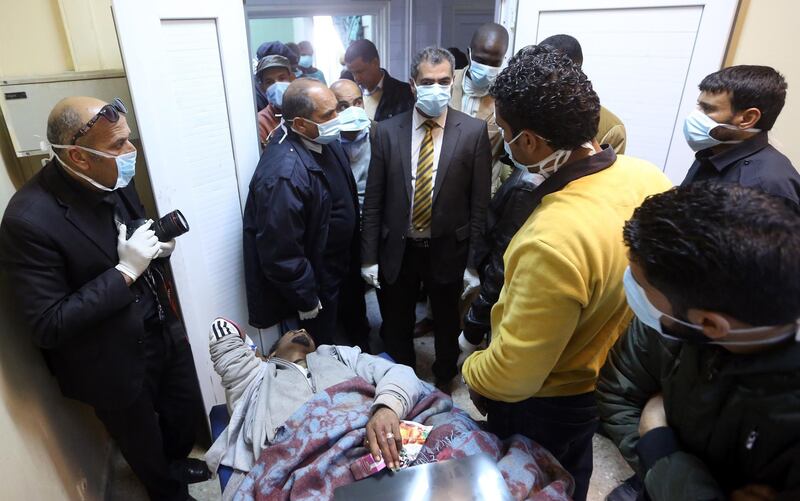More than 100 East African migrants escaped from smugglers holding them captive near the Libyan town of Bani Walid earlier this week, with some of them wounded and reportedly killed in the process, a local source and humanitarian workers said.
The local source in Bani Walid and Doctors Without Borders (MSF) said the migrants were shot at as they tried to flee. Survivors told MSF that at least 15 people were killed and up to 40, mostly women, had been left behind.
MSF said in a statement it had treated 25 of the migrants at Bani Walid hospital, and that some had severe gunshot wounds and multiple fractures.
The migrants, numbering about 140 and of Eritrean, Ethiopian and Somali nationality, had been held by "notorious trafficker Mousa Diab", according to a separate statement by the UN migration and refugee agencies.
They were mainly teenagers seeking asylum in Europe, and reported being held by traffickers who had sold them multiple times around Bani Walid and the nearby town of Nesma, MSF said.
Bani Walid, about 145 km (90 miles) south of Tripoli, has become a major hub for the smuggling and trafficking of migrants who arrive from sub-Saharan African countries trying to reach Libya's Mediterranean coast.
From there, many seek to travel on towards Italy by boat, though crossings have been sharply reduced since last July when a major smuggling group in the Libyan coastal city of Sabratha struck a deal to halt departures under Italian pressure and was then forced out in clashes.
Libya's EU-backed coastguard has also returned more migrants to Libya after intercepting them at sea.
Migrant community representatives have said smugglers are now operating further inland, especially around Bani Walid where they run clandestine prisons, and that migrants who are frequently tortured or raped in order to extort money from them or their families are being held for longer.
"Kidnapping for ransom remains a thriving business, boosted by European Union-sponsored policies aimed at criminalising migrants and refugees and preventing them from reaching European shores at all cost," MSF said.





